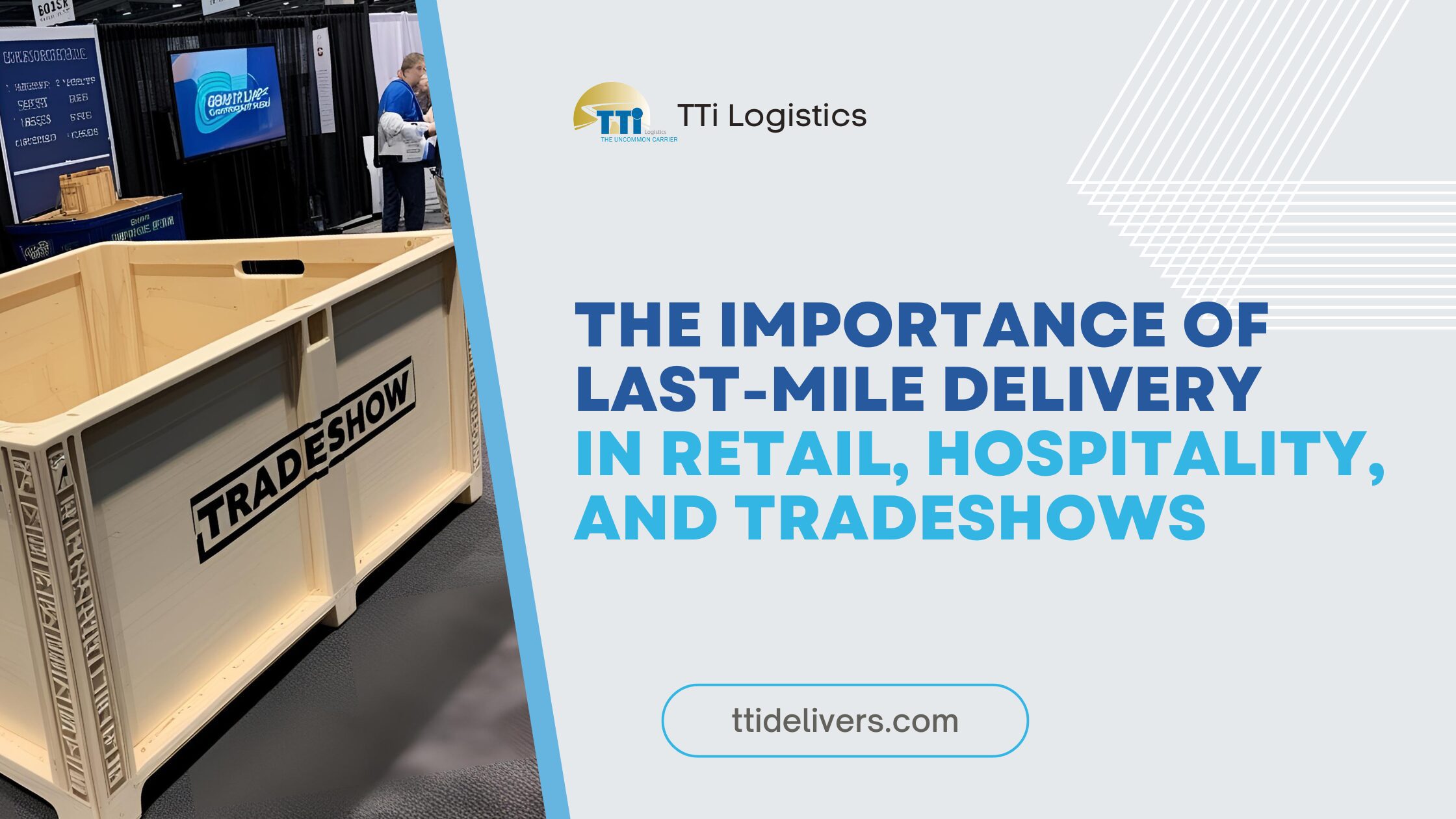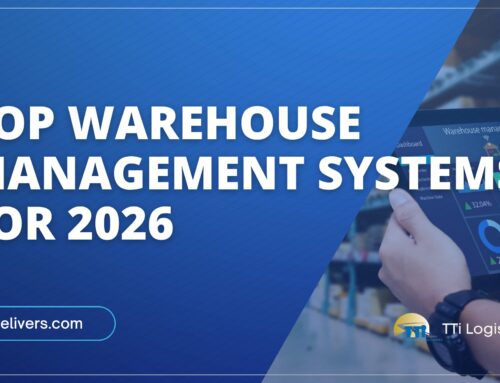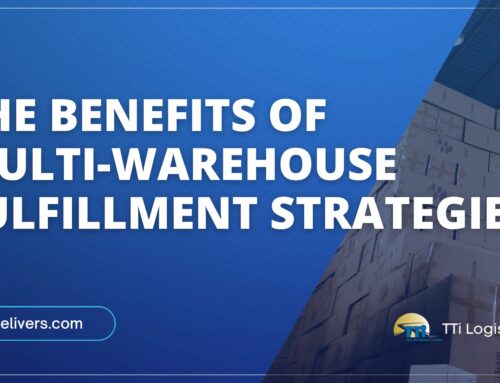The Critical Role of Last-Mile Delivery
No one knows this better than TTi Logistics, a leader in the logistics and supply chain management industry for over 25 years, specializing in optimizing last-mile delivery solutions tailored to the unique needs of these sectors.
This blog explores the importance of last-mile delivery in these contexts and provides strategies to optimize this critical stage of the supply chain.
The Significance of Last-Mile Delivery
- Retail Stores: In retail, timely and accurate delivery of goods is essential. Retailers rely on a steady flow of products to keep shelves stocked and meet customer demand. Last-mile delivery ensures goods reach stores efficiently and on time. Delays can lead to stockouts, lost sales, and lower satisfaction.
- Hospitality: The hospitality industry—including hotels, restaurants, and catering—depends on precise and reliable deliveries. From fresh ingredients to linens, on-time arrivals are crucial for service quality and guest satisfaction.
- Tradeshows: Tradeshows and events are highly time-sensitive and demand impeccable logistics. Exhibitors rely on last-mile delivery to transport displays and materials. Any delay or mishandling can jeopardize participation and reputation.
Challenges in Last-Mile Delivery
Understanding these challenges is essential for creating efficient delivery systems:
- Tight Delivery Windows: Retail stores require pre-opening deliveries, hospitality venues need off-peak timing, and tradeshows operate under strict setup schedules. Meeting these timeframes is vital.
- Complex Delivery Locations: Delivering to retail centers, busy hotels, or convention halls requires precise coordination and navigation.
- High-Value and Sensitive Items: Retail electronics, hotel amenities, and tradeshow displays often need extra security and care during transit.
- Volume and Variety: Managing mixed shipments and high-volume orders while maintaining accuracy adds logistical complexity.
Tips to Optimize Last-Mile Delivery
- Advanced Planning and Coordination
- Integrated Systems: Use logistics management systems that connect suppliers, warehouses, and delivery teams for full visibility across the supply chain.
- Demand Forecasting: Use data analytics to anticipate volumes and avoid last-minute bottlenecks.
- Leveraging Technology
- Route Optimization: Plan the most efficient routes to save time and reduce fuel costs.
- Real-Time Tracking: Enable customers and teams to track shipments live for transparency and trust.
- Flexible Delivery Options
- Custom Windows: Offer tailored delivery windows, like early mornings for retail or late evenings for hospitality clients.
- Multiple Drop-Off Points: For tradeshows or large retail chains, use multi-point delivery strategies to improve efficiency.
- Enhanced Communication
- Proactive Updates: Send automated notifications for dispatch, arrival, or potential delays.
- Direct Contact: Connect drivers with recipients for last-minute coordination.
- Invest in Reliable Transportation
- Dedicated Fleets: Maintain specialized vehicles for high-priority clients to ensure reliability.
- Trusted Partnerships: Collaborate with experienced carriers to enhance delivery consistency.
- Focus on Security and Safety
- Secure Packaging: Protect high-value products with reinforced packaging.
- Compliance: Follow regulations for specific goods, including perishables and hazardous materials.
- Data-Driven Decision Making
- Analytics and Reporting: Measure on-time delivery rates, performance, and client feedback regularly.
- Predictive Analytics: Identify potential disruptions early and act before they escalate.
Case Study: Retail Last-Mile Optimization
Consider a large retail chain that struggled with congestion and delivery delays. Implementing advanced route optimization, flexible scheduling, and analytics helped them achieve measurable improvements:
- Route Optimization Software: Used real-time traffic data to cut delivery times by 20% and fuel usage by 15%.
- Real-Time Tracking: Integrated tracking tools provided live updates to store managers.
- Flexible Delivery Windows: Allowed stores to select preferred times, reducing missed deliveries.
- Dedicated Fleet: Reserved vehicles for urban deliveries to ensure reliability.
- Data Analytics: Monitored direct delivery metrics for continuous improvement and a 25% increase in on-time rates.
Adapting Strategies for Hospitality and Tradeshows
These same strategies can elevate last-mile delivery across the hospitality and tradeshow sectors:
- Hospitality
- Just-in-Time Deliveries: Use direct delivery systems for fresh ingredients and perishables.
- Specialized Services: Use trained teams for luxury items like linens and decor to ensure perfect condition upon arrival.
- Tradeshows
- Advanced Scheduling: Plan deliveries based on exhibitor setup timelines.
- On-Site Coordination: Have staff on-site to manage trade show shipping efficiently.
Delivering Success Through the Final Mile
The importance of last-mile delivery cannot be overstated. For retail, hospitality, and tradeshow operations, efficient last-mile logistics are key to maintaining operations, meeting expectations, and achieving business success. By addressing the challenges and applying strategic, technology-driven improvements, businesses can enhance efficiency, reduce costs, and improve satisfaction.
From route optimization and real-time tracking to flexible scheduling and secure transport, TTi Logistics helps clients strengthen every step of their final-mile operations—ensuring reliability and results where it matters most.
Need Reliable Last-Mile Delivery Solutions? 🚛 TTi Logistics ensures on-time, secure deliveries for retail, hospitality, and tradeshows—powered by technology and precision planning. Contact us today! 📦







